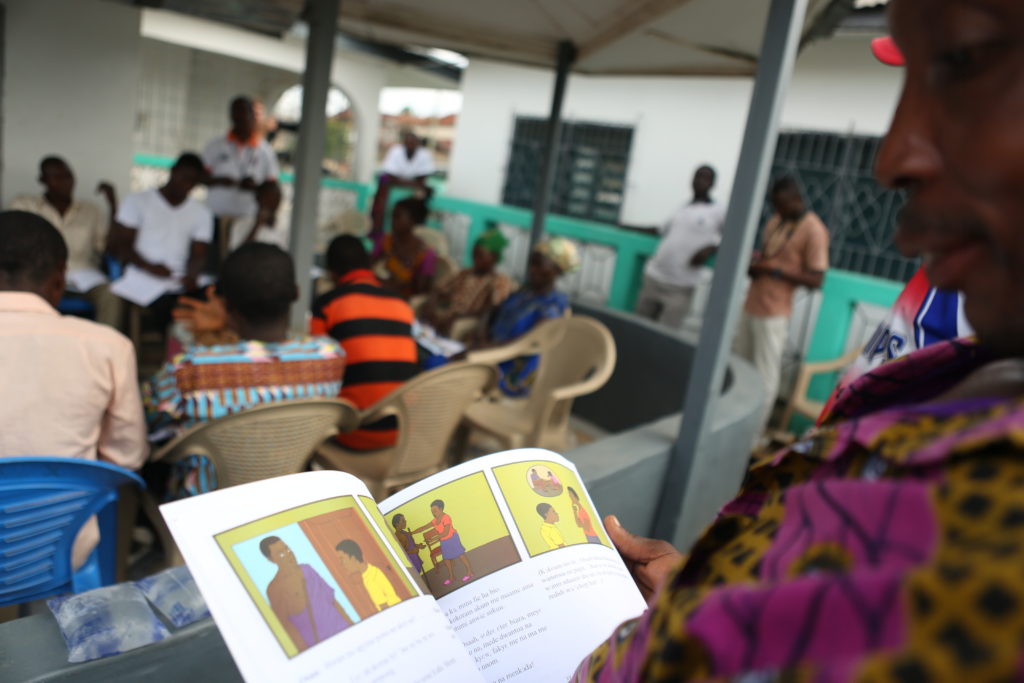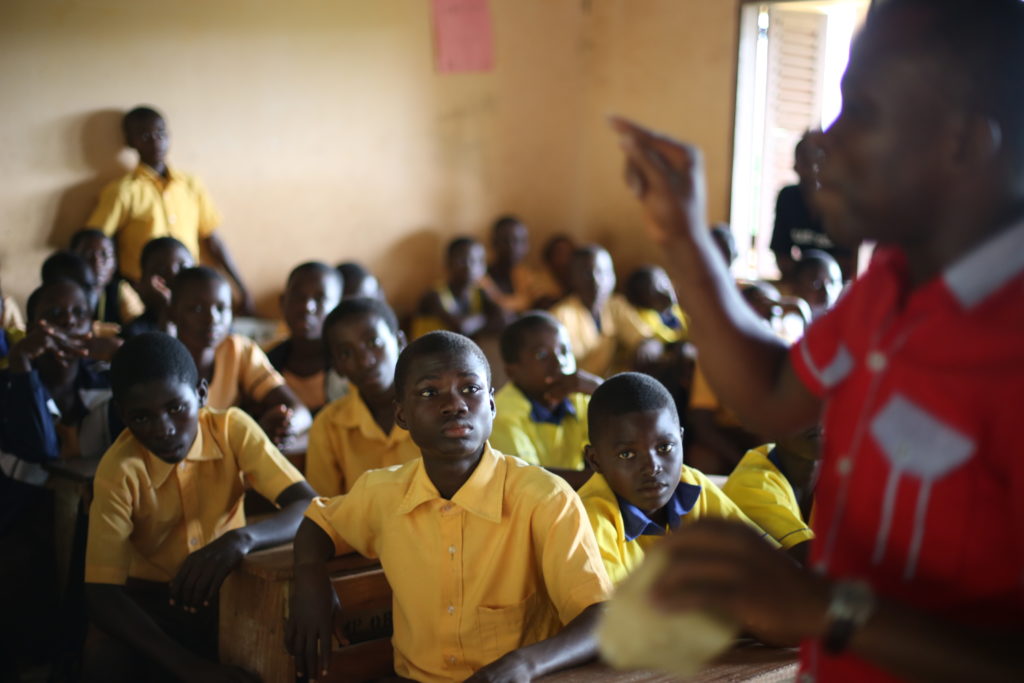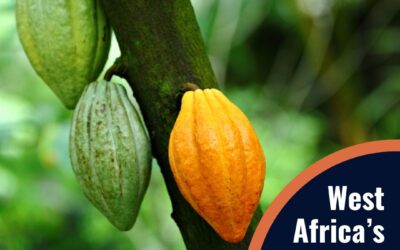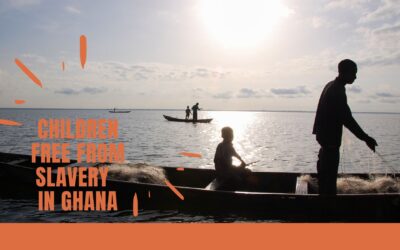Ghana’s gold mines are a source of prosperity and pain. Gold is a huge part of the country’s economy. But for children, mining can bring misery and death.
“The conditions in the unlicensed gold mining sites are deplorable, especially for children,” says Free the Slaves Ghana Director Joha Braimah. “There is a high preference for children,” he says, “because children do not have bargaining power” with mining bosses. Kids are forced to do some of the most dangerous work.
Free the Slaves is educating parents about the hazards to catalyze an end to child mining. The project is featured in the newest video in our Face to Face with Slavery film series: Child Rights in Mining.
The video shows how illustrated booklets are used to teach parents about the risks of child mining and the basic rights of children under Ghanaian law and international treaties.
“The curriculum is the heart of the child rights project,” says Free the Slaves Project Coordinator Bismark Quartey. “It is what generates the desire to change.”
Community facilitators are trained how to use the books in their villages to foster dialogue and mobilize action by parents.

“I’m very proud that I’m helping the children in the town,” says one facilitator named Francis. “The content in the book relates almost exactly to our community. We make them [parents] aware of the right thing to do so that no child will face any danger.”
The project also reaches out directly to children through afterschool clubs in local schools.
“We now have children who are now demanding their basic rights,” Bismark says.

The Child Rights in Mining pilot project was a remarkable success, inspiring 71 percent of parents in the learning groups to take action to protect their children from mining. See the full report here. Free the Slaves and our front-line partners are now expanding the program to a wider area.
Learn more about our front-line work in Ghana on our Ghana webpage.
See other episodes in our Face to Face with Slavery series on our video webpage.


